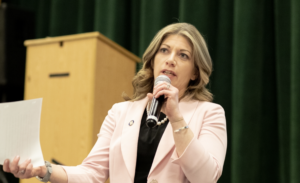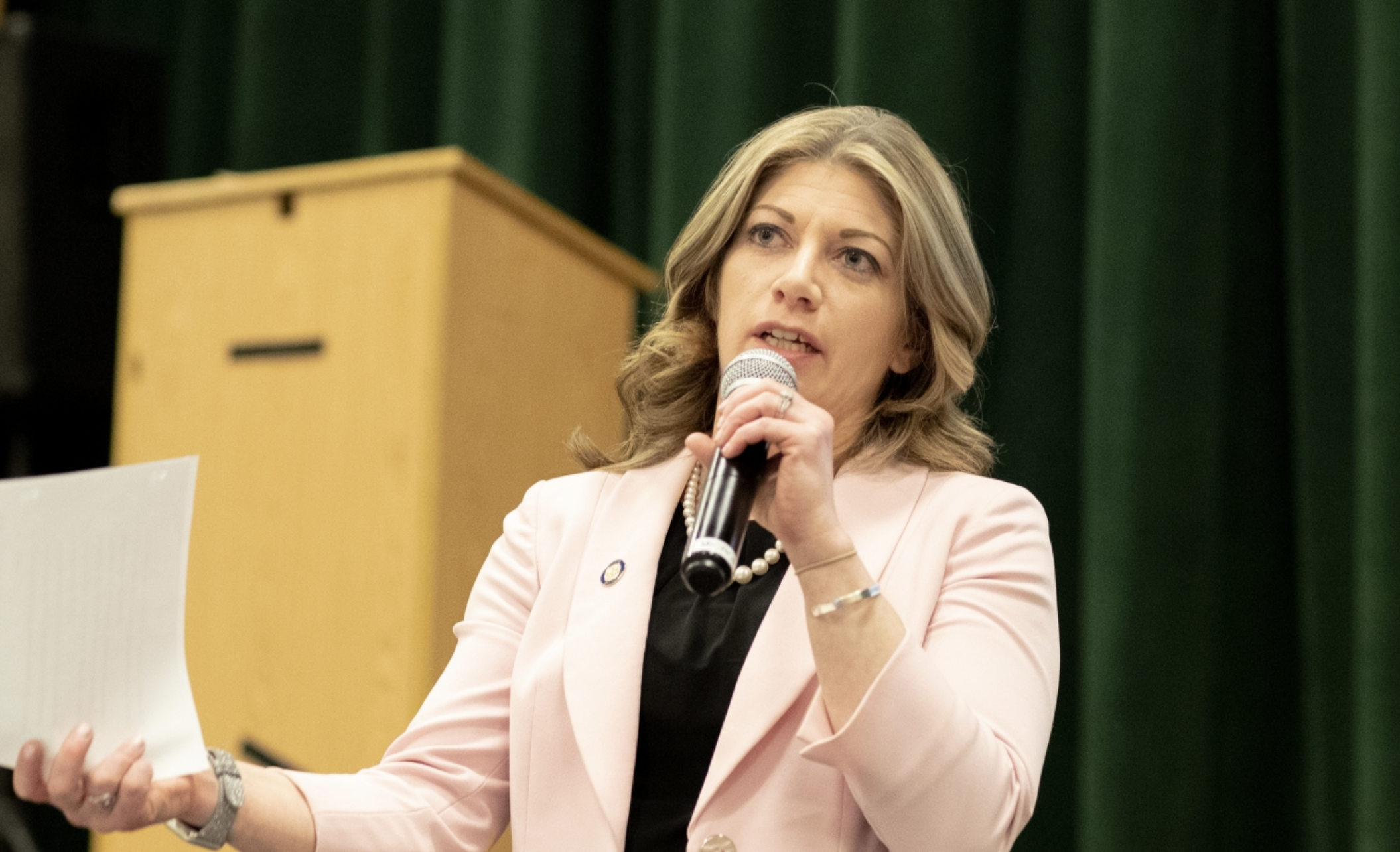With one of the most tumultuous years in a century coming to a close, we asked two Delaware Valley area lawmakers to reflect on 2020, and also to take a look forward at what’s in store with a new legislative session right around the corner.
This conversation is with Democrat Sen. Katie Muth, whose 44th Senate District includes parts of Berks, Chester and Montgomery Counties.
For a look at the Republican side of the aisle, please see our interview with Sen. Bob Mensch.
These interviews have been edited for clarity and brevity.
DVJ: What accomplishment are you most proud of in 2020, whether for yourself, for the Democratic caucus, or for the General Assembly as a whole?
Sen. Muth: I think my answer to that — in terms of personal achievement — goes for the whole legislative session: of the two years that [I’ve been in office] my team and I had the most amendments, [while] the entire state sent four amendments. So, that may not seem like a big deal, but we try to amend every bill to make it better.
We don’t have the majority, so we don’t run the rules. We can’t call hearings for bills as minority chair people. We have no control over the legislative calendar whatsoever. So, any bill that comes up for a vote, I’ve learned over the last two years, the only way we have a chance of making something better or stopping something that’s bad is by putting up an amendment. So, I’m proud that even though I’m a freshman senator, my team offered the most amendments. I think it was 36.
DVJ: What was your biggest disappointment or missed opportunity in 2020?
KM: I think my biggest sense of disappointment was the lack of urgency of the majority party, and maybe at times I would throw the administration in there depending on the issue.
I could give you an example with the housing situation. My office and Senator Santarsiero and some of the House members, we have been pushing not just for rent and eviction relief but also long-term solutions to the mortgage crisis that possibly could — and more than likely will — reoccur just like it did in 2008. And so, that whole housing debacle is still totally a chaotic nightmare, figuring out where a lot of people are left: increased anxiety — if it already wasn’t bad enough in a global pandemic — layer in economic anxiety, and then now you might be homeless.

I’m not at the table for all the major conversations. But I know that our side of the aisle tried with PHFA to get the changes that the landlord’s association wanted. And at the end of the day, the Senate Republicans failed to move a House bill that was sent over that would have made a lot of these fixes.
And so here we are, right, right before the new year, and the White House administration has moved at snail pace to be helpful in this area. So, I think being more proactive about economic relief that would be meaningful throughout this pandemic.
It was this mindset of many that “we’ll just do this as we go” as if it was going to suddenly disappear, right? And so even as the second wave [of coronavirus cases] hit us, there, there wasn’t near as much coordination and organization on how to get resources out to people quick.
So, unemployment checks still takes weeks for people to get that money. And we have people that, that are constituents that we’ve been trying to help get unemployment, get their money when they applied in March. So, you know, those are things where I can’t necessarily control them individually, but those were opportunities where I wish those in power would have moved much more urgently than they did.
DVJ: What’s your top priority in 2021, perhaps a priority other than COVID response?
KM: Lift up Pennsylvania out of the rut that it’s in, and I think we were in a rut pre-COVID and now the COVID situation has exacerbated that. We needed revenue before, right? And we need revenue now.
We need a path to economic sustainability. We need a path to better our public health systems in the state. And so, you know the saying of sometimes you have to have to hit rock bottom to go up. Pennsylvania is pretty near rock bottom right now.
My hope is, is that everybody spent some time — everybody that has a vote and has power spent some time reflecting on this situation, how it’s impacted families, first responders, frontline workers, people that are already underpaid and struggling paycheck to paycheck — that we look at how Pennsylvania operates, how it generates revenue.
Our schools were under prepared for this, all of it. And we decide as a collective [that] from this moment on, we are going to make Pennsylvania a different place. And I’m hopeful for that. I don’t know that that will be a reality, but that’s certainly what I’ll be fighting for every day in the week.
DVJ: What’s the goal that is within reach, but will take a lot of tough work to pull it off?
KM: We’re trying to change the Senate rules. And if you recall the House tried to change their rules, in 2019, and on swearing-in day they failed. We’re going to try to change the Senate rules on swearing-in day.
We will likely fail just because we don’t have the votes. But I see that as something that, that could be within reach if the other side of the aisle found any of our proposed changes palatable. I don’t know that they will.
But we are certainly going to try, and I think that’s a really important point to bring up that, in the absence of rule changes, the constituents that we represent as minority party members are not heard, good bills never come up for a vote. We’ve never voted on a lead remediation bill for clean water in Pennsylvania in 20 some years.
And so these are just common sense, nonpartisan things that I’m hopeful that there’s some common ground. It’s within reach. It’s just, you know, whether or not the ghost of Christmas past visited any of my colleagues. I hope so — [that they] come back in the new year with a different outlook, on their role and influence, and [that influence] on all other people’s lives.
DVJ: What’s the biggest change you expect to see in Harrisburg next year because of a change in the White House?
KM: I would hope that more funding comes down to the state, especially local government — schools, public schools. Now, with that [is a] caveat: how will that money be distributed?
Will the governor give up his power, his executive authority, to put this money where it needs to go in a negotiation for a budget? That’s probably the more likely I’m just, I’m just — that’s my, that’s just a mini prediction. I have nothing to back that up with other than just what happened this past year.
So, I’m hopeful that a Joe Biden administration will certainly be better than what we just went through with the last four years. But with that said, you know, it still comes to a state where the majority party in both chambers struggled to represent the people and often preferred to represent and work for special interests. So, I’m hopeful that that money is transparently distributed in a way where we’ll do the most good and, and go those most in need.

